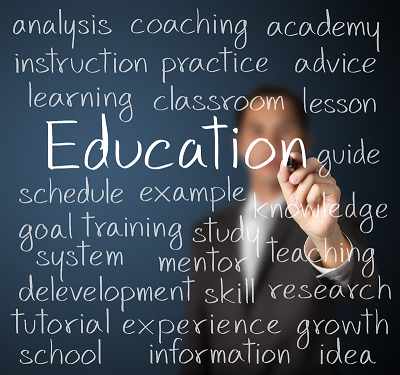Education sector today: Challenges and problems
Introduction to Current Educational Challenges
The educational terrain is always changing, impacted by technological innovation, socio-economic factors, and worldwide events. In spite of improvements in particular sectors, the education sector wrestles with substantial obstacles that impede its capacity to offer fair and impartial access and efficient learning opportunities for all learners.
The Digital Divide
One of the most urgent concerns is the technological disparity, which has become increasingly apparent with the move towards internet-based learning. This gap doesn't only involve the availability of digital gadgets but also includes reliable internet connectivity and digital competence. The conversion to digital learning platforms has deepened educational imbalances, leaving students in rural or socioeconomically marginalized areas at a disadvantage.
Financial Constraints
Financial constraints represent another critical challenge. Many students and educators face budget cuts, resulting in limited resources, overcrowded classrooms, and inadequate support services. In response, writing platforms have emerged, offering students the opportunity to pay for assignment UK and seek essay cheap solutions to manage their academic workload more effectively. These services aim to alleviate some of the pressures faced by students, providing support through affordable academic assistance.
The Problem with the Education System
At the heart of the education sector's challenges is a systemic issue that pervades many institutions and policies. The traditional education system, often criticized for being outdated, fails to meet the diverse needs of today’s student population.
One-Size-Fits-All Approach
The universal one-size-fits-all approach to education ignores the unique learning preferences and requirements of learners, resulting in detachment and the lack of personalization in the learning process. This issue calls for a more adaptive and individualized learning approach that can accommodate the various skills and passions of students.
Lack of Practical Application
Moreover, the educational framework usually stresses on theoretical knowledge at the expense of hands-on application and skill improvement. Students often graduate devoid of the ability to think critically, solve problems, and engage in social interactions vital for prosperity in the professional world. This hole between academic learning and real-world application underscores the demand for programs that incorporate practical learning opportunities and realistic problem-solving in real-world scenarios.
In addressing these challenges, students frequently look for supplementary resources to bolster their educational path, including services that offer academic help. For those confronting budgetary restrictions, the option to find essay cheap services becomes particularly valuable.
Trends and Issues in Education
The education sector is not only defined by its challenges but also by the trends and issues that shape its future direction. These trends offer perspectives into the possible routes for reform and progress within the field.
Emphasis on STEM Education
One notable change is the mounting priority on STEM (Science, Technology, Engineering, and Mathematics) education, motivated by the broadening demand for abilities in these fields. While this concentration is crucial for equipping students for future vocations, it also triggers fears about the overshadowing of the humanities, arts, and social sciences, which are fundamental for a holistic education.
Mental Health Awareness
Another major issue is the rising consciousness of students' emotional health necessities. The stresses of scholastic achievement, coupled with social and economic factors, have resulted in heightened stress and anxiety levels among students. Educational establishments are now tasked with providing comprehensive mental health aid and nurturing a learning environment that prioritizes student health.
Challenges in Education Today
The education sector’s current landscape is characterized by a diverse range of difficulties that call for prompt consideration and strategic intervention. Among these, one may ask, what is the biggest problem in education today? This inquiry brings attention to the requirement to recognize and tackle the most pressing issue eroding the efficiency and fairness of educational systems globally.
Educational Inequity
The educational disparity continues to be one of the most formidable hurdles and takes precedence in the biggest problems in education today. With inequalities in access to high-quality education enduring throughout varied regions, socioeconomic statuses, and racial/ethnic demographics, dealing with this problem is critical. Efforts to combat educational inequity must encompass specific approaches and allocations to guarantee that all learners, regardless of their context, have the opportunity to excel.
Teacher Shortages and Burnout
Additionally, many regions face teacher shortages and high rates of educator burnout, exacerbated by the demands of adapting to new teaching modalities and the pressures of meeting diverse student needs. Addressing these challenges necessitates comprehensive support for educators, including professional development, mental health resources, and measures to improve working conditions.
Conclusion
The education sector today is at a turning point, encountering considerable difficulties but also ready for revolutionary change. Navigating the challenges of education calls for a collaborative attempt among educators, policymakers, learners, and communities. Innovations in teaching methodologies, curriculum design, and educational policy, alongside aid from educational support services, can play a central role in navigating these challenges. As the sector evolves, it is essential to remain steadfast on the ultimate purpose of education: to furnish students with the expertise, skills, and values required to lead satisfying lives and make positive contributions to society. By welcoming change and promoting inclusiveness, flexibility, and adaptability, the education sector can triumph over its existing challenges and emerge more robust, fairer, and more efficient than ever before.

